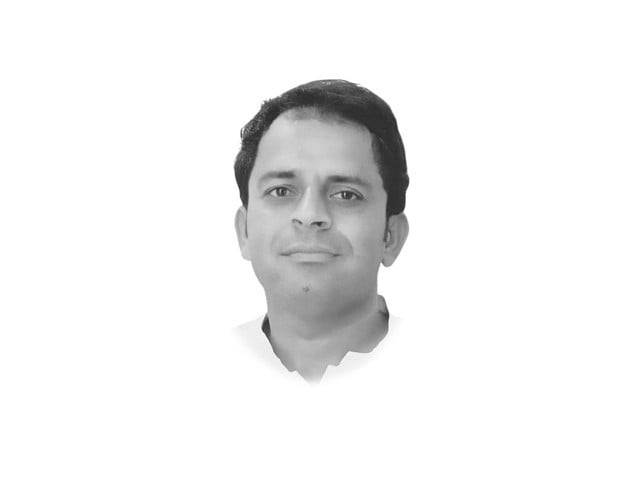Kashmore's criminality: a way forward?
The citizens of Kashmore recently travelled to Islamabad to protest the rampant criminality

A democratic, Islamic and welfare state. The only nuclear-armed Muslim country in the world. A geo-strategically key player in global politics. Though these characteristics and epithets may manifest and appeal to people's sensibilities elsewhere, they rarely inspire the people of Kashmore and Kandhkot struggling with chronic criminality.
Over the past few years, hundreds of citizens have been killed, injured, kidnapped, tortured, extorted and had their businesses and properties attacked and looted with impunity due to the state's apathy and the provincial government's lasting complicity. The HRCP has occasionally taken notice of the Hindu community's worsening plight, only to receive misleading 'all is well' replies from the district's LAEs.
Worse, by compromising their journalistic integrity, the local branches of mainstream media have prioritised personal connections, protocols and ties with officials and influential figures, thereby obscuring critical issues from the mainstream narrative.
Haunted and hapless, the citizens of Kashmore recently travelled to Islamabad to protest the rampant criminality. The state minister for interior, along with Kashmore's MNAs, has — after bringing the issue to the Prime Minister's notice — verbally assured the protesters of an 'operation' against the criminals and their patrons in the district. It remains to be seen whether the proposed operation — lacking a clear description of its nature, scope or extent — will be implemented and effectively address the crime. Understanding the factors and actors driving criminality in the district would help inform efforts to combat it.
A district with one of the lowest literacy rates, Kashmore remains systematically marginalised — trapped in a disadvantaged socio-economic state with negligible political consciousness. This reinforces the power of tribal and feudal warlords, as well as of those who are politically electable, which directly undermines independent policing and the writ of the state.
The policing influenced and constrained by predetermined 'red lines' and the judiciary's limited role also strengthens tribal-feudal and political influence, empowering tribal, feudal and political leaders as key stakeholders who lord over citizens' lives by inciting clashes and cultivating authority. The warring tribes seek refuge in katcha's rugged terrain, only to be co-opted and organised by key stakeholders. These empowered gangs then operate with impunity and unleash chaos.
Moreover, criminality has raised many self-styled saviors who, in one way or another, capitalise on criminality by hedging their bets or playing both sides — the aggressor and the aggrieved. This includes segments of civil society — primarily composed of religio-political and nationalist groups, white-collar individuals and public sympathisers — who carefully balance their ill-informed prominence, factional loyalties and connections with both stakeholders and LAE officials. Also, they cash in on the inefficiency of policing for their benefit by affecting arrests and releases. This way criminality turns out to be a self-sustaining lucrative enterprise.
Amid the deeply rooted factors, an 'operation' limited to selective kinetic actions would amount to a renewed false hope. Instead, a comprehensive strategy with long- and short-term goals is needed — the former focusing on socio-economic and educational uplift, and the latter on policing efforts aimed at restoring the state's writ.
For this purpose, depoliticising the police; enhancing the judiciary's role in adjudicating tribal feuds; stepping up cross-border coordination among the provinces; scrutinising local stakeholders, groups and people associated with them; detaining the informers, facilitators and insiders; and rehabilitating the flatterers would help sustainably restore order in Kashmore.
However, considering the public plight as an encouraging factor for the provincial political dispensation and its complementary role in the central government, many might rightly harbor skepticism about the potential outcomes of the proposed operation beyond budgetary allocations or mere kinetic actions.
One can only hope against hope that the state will unprecedentedly prove the skeptics wrong.















COMMENTS
Comments are moderated and generally will be posted if they are on-topic and not abusive.
For more information, please see our Comments FAQ